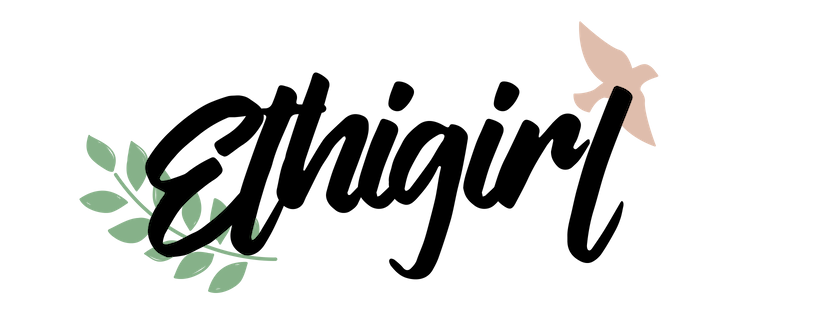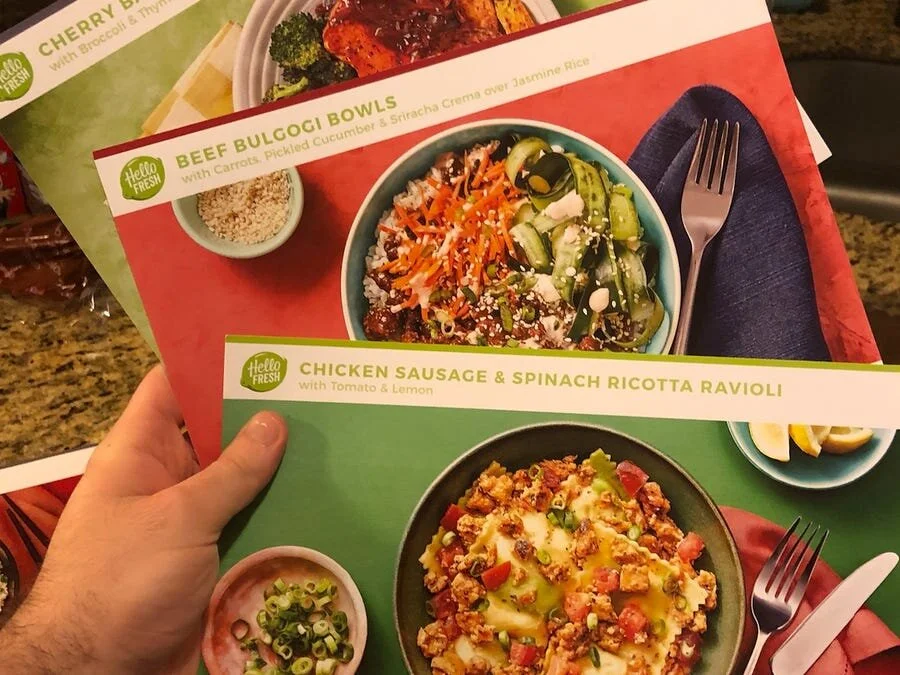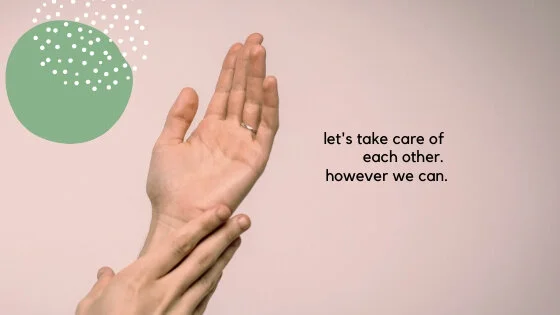Literature Review
The third component of my research was to consult a diversity of other research on my topic, including peer-reviewed articles, journalism, and other texts like blog posts and interviews. This element of my methodology recognizes the value of past work on this subject, much of which required emotional labour to produce. It also seeks to make up for shortcomings in diversity in my experiment, since there were other groups and issues I wished to represent and discuss.
Results & Discussion
Tenet 1: Gratitude
The first of the three tenets I argue one must consider when planning a sustainable dinner party (while social distancing) is gratitude. My initial inspiration for including this tenet was my realization of how grateful I am to my participants for contributing their time and labour. I feel more than honoured to be close to so many individuals who were willing to go above and beyond to participate in a friend’s class assignment, particularly during times like these. Through this project I have discovered the true strength, depth, and meaning of the relationships I’ve developed throughout the past several years. Additionally, however, I wish to argue that gratitude in relation to a sustainable dinner party during a pandemic only begins with a recognition of how valuable it is to have friends who will share a meal with you. An understanding of gratitude is incomplete without concrete efforts toward justice. We may be grateful for the farmers who produce our food, as well as the essential workers who process our grocery order, but we must also support their fair treatment by advocating for living wages and by purchasing ethically-made products.
Hosts must consider where the food on the dinner party table will come from, and understand that sustainable food is fair trade. According to scholar Michael K. Goodman, who cites Barrett-Brown and Raynolds, the fair trade movement works both “in and against the market” and seeks to improve the living and working conditions of Global South farmers and producers. Goodman also mentions that, according to Oxfam, fair trade promotes “trade, not aid” and challenges the “ways of trading that keep people poor.” Concretely, these elements may look like purchasing products made by people with the right to unionize who work in safe conditions and are paid enough to support both themselves and their families. Sustainable food, therefore, supports sustainable livelihoods. Finally, when considering gratitude in regards to the dinner party itself, participants should recognize it not only in the context of their relationships with those around the table, but of their relationship with the land they eat upon. Many sustainable dinner parties will be held on unceded Indigenous territory, meaning it was stolen by colonizers who caused the violent loss of cultures as well as hundreds of thousands of lives. Many event hosts represent this issue through land acknowledgements. However, as scholars Eve Tuck and K. Wayne Yang wrote in their article “Decolonization is Not a Metaphor,” acknowledgement is not sufficient. Many scholars and activists use the term “decolonize” as a verb to describe the accommodations they are making in colonized spaces, without realizing the very real implications of the word itself.
Finally, creating space for gratitude at a dinner party in a pandemic must not only acknowledge the role of grocery store employees, cleaners, healthcare workers, and public transit drivers and maintenance workers in making it happen, but it must also fight for their fair treatment. As journalist Owen Jones argues, the movement during COVID-19 toward celebrating essential workers as “heroes” is necessary, but incomplete without advocacy from the privileged. Jones writes that “no floor can be cleaned remotely,” and yet those risking their lives to provide services like these are systemically underpaid and unfairly treated. Sustainable dinner party attendees who can (and should) work from home during this pandemic should spend time fighting in favour of normalizing essential workers’ higher wages and safer conditions, including access to personal protective equipment and sufficient distance from customers. It is additionally important that we extend our action-based gratitude during this time to our favourite establishments, such as restaurants, cafes, and bars. Many businesses still offer zero-contact delivery, and others provide the option of purchasing gift cards or merchandise online. Food writer Alicia Kennedy cites vegan business owner Chris Kim, who states that small businesses are relying on limited income during this time to prioritize their staff’s needs, like job security and reliable income with which to support their families. We owe those who keep these valuable establishments running the ability to do so. Therefore, sufficient gratitude while hosting a sustainable dinner party in a pandemic extends beyond recognition and into concrete action.
Tenet 2: Accessibility
Some experiment participants discussed the many costs associated with trying to live more sustainably, such as sacrificing additional income, time, or waste-intensive products, which can make participation in the movement exclusionary. Thus, a consideration of accessibility when preparing for and hosting a sustainable dinner party must encompass the many challenges and barriers that marginalized community members face on a daily basis. A sustainable dinner party during social distancing should still allow and encourage the participation of everyone, regardless of their situation.
First of all, sustainable food itself evokes many accessibility issues. As dinner party participant Anna suggested, many grocery stores simply do not offer sustainable options, and access to grocery stores differs greatly depending on where you live. For example, scholar Adi Segal discusses food deserts, a term which describes lack or difficulty of geographical access to healthy and nutritious food establishments, usually in lower-income areas. In New York City, small grocery stores (known as bodegas) are far more likely to exist in the neighbourhoods of East and Central Harlem than in the Upper East Side, and these bodegas are less likely to offer nutritious food options than those in the latter neighbourhood. Moreover, while many restaurants exist in all three neighbourhoods, those in East and Central Harlem are more likely to be fast-food establishments. Food deserts therefore limit access to healthy food options and further curb sustainability efforts. Additionally, disability rights blogger Crippledscholar argues that some things environmentalists tend to label as unsustainable, like straws or single-use packaging, make the lives of disabled folks easier. For example, when able-bodied environmentalists advocated for removing peeled, packaged oranges from supermarket shelves, it was harmful to the agency of disabled individuals for whom these products are incredibly valuable.
Moreover, as dinner party participants Husayn and Juliette discussed, movements such as the zero waste one require additional labour for things like remembering to bring reusable bags and selecting more sustainable products at the store. This topic should be kept in mind in regards to accessibility because according to journalist Alden Wicker, this additional labour disproportionately falls on women since it has become included in domestic labour responsibilities. For these reasons, sustainable parties should adopt a BWYC (Bring What You Can) policy, both physically and intellectually. Participants should not be worried about preparing a perfectly-sustainable dish if it is not within their means to do so, and this experience should be a learning opportunity for everyone. No one should feel gatekept, or as though they do not have the knowledge or resources that qualify them to attend.
Finally, in regards to accessibility and Coronavirus, one positive point to hosting a dinner party remotely is that it increases access to those who might not otherwise have been able to attend. For example, if I had held my event in my home, those who could not access stairs would have been excluded. Dinner party participant Juliette also addressed the impact of COVID-19 on mental health, stating how finding the motivation to eat and to cook has become more challenging with these new measures. As Ed Yong of The Atlantic wrote, human contact is a coping mechanism for many and social distancing has greatly reduced it. The effects of Coronavirus also negatively impact those with anxiety and obsessive-compulsive disorder, elderly people, those living in abusive homes, and Asian people dealing with an increase in racism. There is, evidently, no shortage of accessibility concerns one must consider when hosting a sustainable dinner party during the coronavirus. The host and participants should do their best to address as many as possible.
Tenet 3: Environmentalism
No discussion of sustainability is complete without addressing issues of environmentalism, and rightly so. Although a sustainable dinner party must mitigate its impact on the environment, there are aspects of western environmentalism that override social sustainability in negative ways. For instance, in regards to food, environmentalists usually advocate for reducing or eliminating consumption of animal products, which is certainly important since up to 30% of global greenhouse gas emissions come from meat. However, as dinner party participant Delphine pointed out, being vegetarian does not necessarily mean being sustainable. Junk food, for example, is often vegetarian, but it creates packaging waste. The food sovereignty movement also reminds us how meat is significant to many cultures, and can be farmed and eaten in less carbon-intensive ways. Additionally, while an in-person sustainable dinner party event should encourage those involved to reduce their footprint through low-carbon transportation and low-waste dinnerware, holding the event remotely mostly eliminates these concerns.
Finally, in regards to the relationship of COVID-19 to environmentalism, dinner participants Mariam and Husayn argued that sanitation concerns have increased waste. According to Mariam, products such as bunches of bananas are now wrapped in plastic, and Husayn shared that some grocery stores no longer allow shoppers to bring reusable bags. As a broader social dialogue, many social media posts have gone viral discussing how social distancing measures have decreased pollution, and how we should then conclude that “humans are the virus.” However, as writer Sierra Garcia argues, the negative social impact of the pandemic more than reduces a cause for an “environmental win.” This sentiment is also reminiscent of ecofascist, overpopulation-based environmentalism arguments, such as the one in Paul Ehrlich’s famous book The Population Bomb. Theories like Ehrlich’s blame Global South women for causing environmental problems through their role in increasing populations. To avoid unjustly blaming already-marginalized groups, a sustainable dinner party in the time of quarantine should discuss the systems which foster climate injustice, such as capitalism, globalization, mass industry, and corporate greed. Our learnings from COVID-19 should be less about reducing overpopulation and more about overhauling our systems to accommodate everyone, because it is possible.
Conclusion
This essay provides a framework in regards to how one might host a sustainable dinner party during a pandemic. It has discussed the varying issues and considerations related to food, the event itself, and the impact of the Coronavirus on planning such an event. The community cookbook attached also represents a meaningful visual representation of this essay’s findings and should be read alongside it. Together, these elements conclude that hosts must incorporate three main tenets: action and justice-based gratitude, diverse considerations of accessibility, and environmentalism through an intersectional lens. Indeed, it discussed many considerations within the realm of each tenet, and hosts and participants should do their best to incorporate as many as possible. Future research should prioritize hosting such dinner parties with more diverse participant samples, therefore incorporating as many concerns and uplifting as many voices as possible. Moreover, sustainable dinner parties held following the COVID-19 pandemic that may not be forced to exist remotely might still consider including this as an option for participants who are unable to attend in person.
Works Cited
Broaders, Anna, Juliette Escande, Delphine Polidori, Mariam Grigoryan, and Husayn Jamal, video call with the author, April 04, 2020.
Coté, Charlotte. “‘Indigenizing’ Food Sovereignty. Revitalizing Indigenous Food Practices and Ecological Knowledges in Canada and the United States.” Humanities. Vol. 5, no. 57 (2016): doi:10.3390/h5030057
Crippledscholar. “When Accessibility gets Labeled Wasteful.” Crippled Scholar, March 4, 2016. https://crippledscholar.com/2016/03/04/when-accessibility-gets-labeled-wasteful/
Derfel, Aaron. “Montreal public health scrambles to avoid community spread of COVID-19.” Montreal Gazette, March 17, 2020. https://montrealgazette.com/news/local-news/montreal-public-health-scrambles-to-avoid-community-spread-of-covid-19/
Garcia, Sierra. “‘We’re the virus’: The pandemic is bringing out environmentalism’s dark side.” Grist, March 30, 2020. https://grist.org/climate/were-the-virus-the-pandemic-is-bringing-out-environmentalisms-dark-side/
Goodman, Michael K. “Reading fair trade: political ecological imaginary and the moral economy of fair trade foods.” Political Geography. Vol. 23 (2004): 891-915. doi:10.1016/j.polgeo.2004.05.013
Jones, Owen. “The undervalued heroes of the coronavirus crisis need our thanks - and our support.” The Guardian, March 21, 2020. https://www.theguardian.com/commentisfree/2020/mar/21/undervalued-heroes-coronavirus-crisis-cleaners-supermarket-workers
Kennedy, Alicia. “Vegan Business Owners Share Coronavirus Challenges and Hopes for the Future.” Tenderly Magazine, March 31, 2020. https://medium.com/tenderlymag/vegan-business-owners-share-coronavirus-challenges-and-hopes-for-the-future-4aaee234f459
Kimmerer, Robin. “Mishkos Kenomagwen: The Teachings of Grass.” In Braiding Sweetgrass: Indigenous Wisdom, Scientific Knowledge and the Teachings of Plants. Minneapolis, MN: Milkweed Editions, 2013.
Segal, Adi. “Food Deserts: A Global Crisis in New York City - Causes, Impacts and Solutions.” Consilience: The Journal of Sustainable Development. Vol. 3, no. 1 (2010): 197-214. https://www.jstor.org/stable/26167795
Tuck, Eve and K. Wayne Yang. “Decolonization is not a metaphor.” Decolonization: Indigeneity, Education & Society. Vol. 1, no. 1 (2012): 1-40.
Van de Kamp, Mirjam E., S. Marjie Seves and Elisabeth H. M Temme. “Reducing GHG emissions while improving diet quality: exploring the potential of reduced meat, cheese and alcoholic and soft drinks consumption at specific moments during the day.” BMC Public Health, vol. 18, no. 264 (2018): 1-12. https://doi.org/10.1186/s12889-018-5132-3
Wicker, Alden. “The complicated gender politics of going zero waste.” Vox, May 9, 2019. https://www.vox.com/the-goods/2019/5/9/18535943/zero-waste-movement-gender-sustainability-women-instagram
Yong, Ed. “How the Pandemic Will End.” The Atlantic, March 25, 2020. https://www.theatlantic.com/health/archive/2020/03/how-will-coronavirus-end/608719/





































